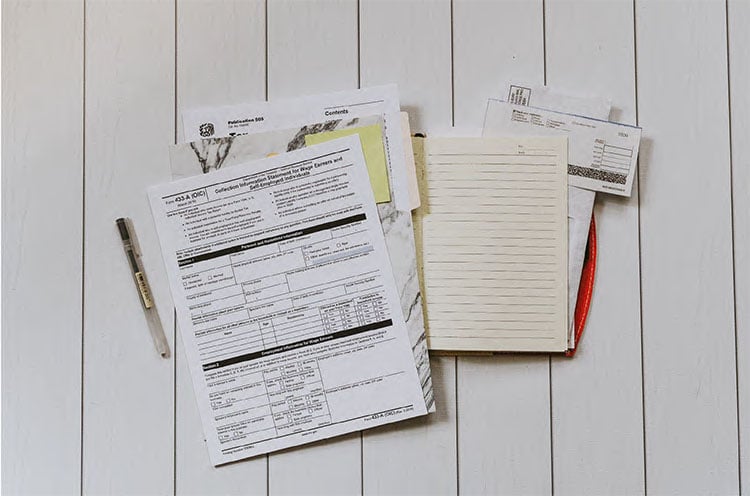Caring for aging parents is a stressful time full of stress and uncertainties. Not only are you worried about losing your parents–but you’re also concerned about how to handle their affairs. From managing their real estate matters and financial accounts to ensuring their overall comfort, handling these aspects effectively is crucial to ensure their well-being and security.
In this blog, we’re happy to offer valuable insights and practical tips for de-cluttering, navigating real estate and loans, and managing accounts when caring for your elderly parents. Let’s dive in!
Evaluate Your Elderly Parents Needs
Evaluate your parents’ living situation and determine if it suits their ever-changing needs. Consider things like accessibility, maintenance, proximity to essential services, and social support. Based on this assessment, explore options like downsizing, making home modifications to accommodate aging in place, or transitioning to a senior living community. Ultimately, you want to do what is best and most comfortable for them.
Protect Their Property
Keeping your aging parent’s home out of probate can offer several advantages, including avoiding lengthy legal processes and preserving family privacy. If you’re interested in learning more, continue below for some tips to help you navigate this often complicated situation.
- Establish Joint Ownership: Consider transferring property ownership to a joint tenancy with the right of survivorship or a tenancy by the entirety if applicable. This ensures that the property automatically passes to the beneficiaries upon your parent’s passing, ultimately bypassing probate.
- Create a Living Trust: Set up a revocable living trust and transfer the home ownership into the trust. By doing so, the property is no longer considered part of the probate estate and can be transferred to the beneficiaries specified in the trust document without issue.
- Utilize Transfer-on-Death Deeds: In some cases, it’s possible to use transfer-on-death deeds. This document allows homeowners to designate specific beneficiaries who will receive the property upon their passing without probate.
- Consider Lifetime Gifts: If appropriate for your situation, your parents can gift the property to you or other family members during their lifetime. However, consulting with an estate planning attorney or financial advisor is essential to understand such transfers’ tax implications and potential Medicaid consequences.
- Keep Beneficiary Designations Updated: Make sure your parents have named beneficiaries on any accounts related to the home, such as life insurance policies or retirement accounts. This can help direct the proceeds to the designated beneficiaries outside of probate.
Declutter and Organize

Decluttering and downsizing are essential to preparing for the future and supporting aging parents. Below are some key considerations to ponder when embarking on this journey.
- Decluttering with Sensitivity: Decluttering can be emotionally challenging for aging parents, as it often involves letting go of cherished possessions. Approach this process with sensitivity, understanding their attachment to specific items. Encourage them to prioritize sentimental belongings while considering practicality and space constraints.
- Sorting and Organizing: Develop an effective approach to decluttering by categorizing items into keep, donate, sell, or discard. If need be, you might even consider hiring professional organizers or enlisting the help of family members to make the process more efficient. Finally, ensure that important documents and valuables are safely stored and easily accessible.
- Donating: Donating unwanted items can provide a sense of purpose and benefit others in need. Research local charities, nonprofit organizations, and thrift stores that accept donations–some even offer pick-up services for oversized items. Remind your parents of their donations’ positive impact on the community to provide motivation.
- Co-signing and Estate Planning: As your parents downsize or transition to a new living arrangement, they may need assistance securing a new lease or mortgage. We recommend co-signing with them, if appropriate. However, make sure to thoroughly understand the legal and financial responsibilities involved in co-signing agreements and consult with professionals to protect both of your interests.
- Documenting Belongings: Take inventory of valuable items and sentimental possessions, including photographs, descriptions, and estimated values, as this information may be required for insurance or future estate planning.
Manage Their Accounts

When caring for aging or elderly parents, efficiently managing their accounts becomes crucial. Below are some essential aspects to consider and ultimately make the process easier.
- Banks and Financial Institutions: Ensure you understand your parents’ banking relationships. To do so, establish open lines of communication with their bank and inquire about any special services or account options for senior customers. Set up online access with their consent to monitor and manage accounts conveniently
- Loans and Debts: Review your parents’ loans and debts, such as mortgages, car loans, or credit card balances, and stay informed about payment schedules to ensure payments are made on time. Consider exploring refinancing options or debt consolidation if it aligns with their financial goals and makes things more comfortable–after all, that is one of the goals.
- Medical Providers: Maintain a list of your parent’s doctors, specialists, and medical facilities. Keep track of appointments, prescriptions, and medical billing or insurance claims. Consider becoming their designated healthcare proxy to ensure seamless communication and decision-making in case of medical emergencies.
- Insurance Coverage: Inspect your parents’ insurance policies, including health insurance, life insurance, and long-term care insurance, familiarizing yourself with coverage details, payments, and renewal dates. By staying updated on policy changes and the like, you can ensure they have appropriate coverage for their current needs.
- Attorneys and Legal Documents: Have a conversation with your parents so they have an updated estate plan. Try and meet with their attorney to review and update legal documents such as wills, trusts, powers of attorney, and healthcare instructions. Finally, request copies of these documents to ensure your understanding.
- Passwords and Digital Assets: Consider creating a system to securely manage your parents’ passwords and digital assets. Useful resources like password managers can store login information for their online accounts to make things just a bit easier. Discuss the importance of cybersecurity and educate your parents about common online threats and how to protect their digital presence in this time of vulnerability.
Trust the Team at the Leslie Glazier Group to Guide the Process

When caring for aging or elderly parents, there’s much to do to ensure their affairs are in order while preventing any property from entering probate. Addressing their real estate and financial affairs can help ensure your parents’ financial well-being and reduce your family’s stress at a time when you should be grieving. At the Leslie Glazier Group, we hope to make things easier, offering insights and tips to help you navigate these aspects successfully. And in the end, you’ll be able to provide the best care and support for your aging or elderly parents. Contact us today to get started.


